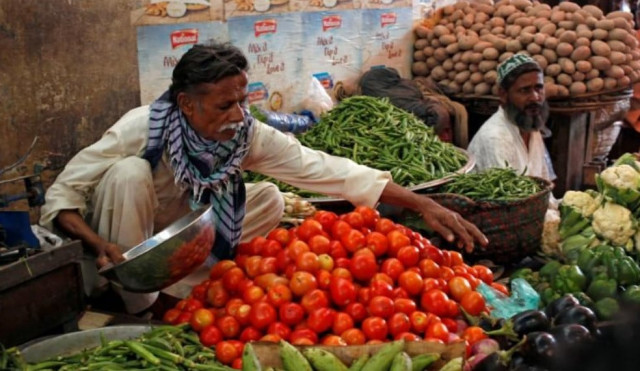Prices of essentials show no signs of ebbing
Delays in govt intervention fuel public frustration

Inflation has hit Rawalpindi hard as prices of essential commodities reach unprecedented highs, contrary to government and administrative assurances of stability.
The cost of basic food items, including pulses, ghee, oil, flour, and vegetables, has surged, placing a heavy burden on citizens.
Among the most significant price hikes, Black Gram is now priced at Rs600 per kilogram, and Split Chickpeas has reached Rs400 per kilogram.
Prices of ghee and oil have similarly soared, with a carton of ghee oil now costing Rs1,500 more than before.
As a result, the price of one kilogram of ghee has reached Rs500, while cooking oil is being sold at Rs520 per litre.
Additionally, staples like white gram and rice have also exceeded Rs400 per kilogram, and soft drink prices have risen by Rs20 to Rs30 across all brands.
Spices have witnessed a steep increase of 50 per cent in their prices, and poultry prices remain high, with chicken selling at Rs650 per kilogram and eggs priced at Rs330 per dozen.
Dairy products have not been spared, as milk now costs Rs220 per litre and yogurt Rs240 per kilogram. Meat prices are similarly steep, with mutton at Rs2,300 per kilogram and beef at Rs1,400 per kilogram.
Fresh produce is also affected, with potatoes priced at Rs120 per kilogram, onions at Rs140, tomatoes at Rs150, and peas at Rs350 per kilogram.
Prices of imported items like garlic and ginger are even higher, at Rs650 and Rs630 per kilogram respectively.
On Thursday, November 7, representatives from the Central Grocery Merchants Association, Milkmen Market, Naan Bai, Mutton Beef Shops Union, and Poultry Union met with the Deputy Commissioner to address these issues in a Price Control Committee meeting. Despite these discussions, new official price lists for food, groceries, dairy, and other essentials have yet to be released.
Salim Parvez Butt, the Central President of the Grocery Merchant Association, expressed frustration with the delay.
He noted that the revised rates were supposed to be announced on November 7.
However, as of Sunday, there has been no update, leading to mounting frustration among merchants and residents alike.
Butt warned that if the new rates, expected to be released on Monday, November 11, are found to be below wholesale market prices, merchants will consider boycotting the sale of government-regulated items.
As citizens wait anxiously, the delay in government intervention continues to strain household budgets, further intensifying the impact of inflation across Rawalpindi.



















COMMENTS
Comments are moderated and generally will be posted if they are on-topic and not abusive.
For more information, please see our Comments FAQ